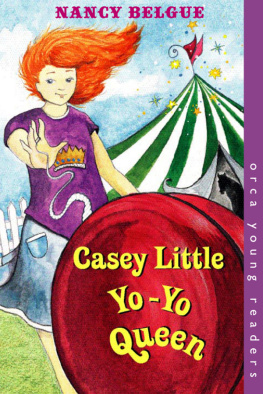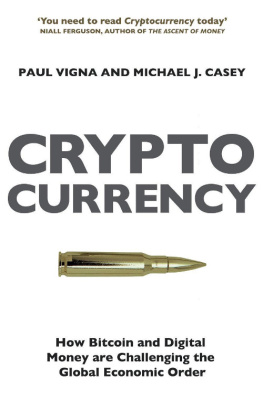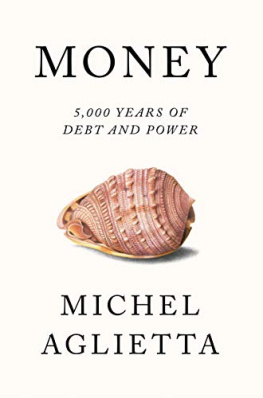Casey Michel - All the Shills Money Can Buy
Here you can read online Casey Michel - All the Shills Money Can Buy full text of the book (entire story) in english for free. Download pdf and epub, get meaning, cover and reviews about this ebook. year: 2015, genre: Politics. Description of the work, (preface) as well as reviews are available. Best literature library LitArk.com created for fans of good reading and offers a wide selection of genres:
Romance novel
Science fiction
Adventure
Detective
Science
History
Home and family
Prose
Art
Politics
Computer
Non-fiction
Religion
Business
Children
Humor
Choose a favorite category and find really read worthwhile books. Enjoy immersion in the world of imagination, feel the emotions of the characters or learn something new for yourself, make an fascinating discovery.
- Book:All the Shills Money Can Buy
- Author:
- Genre:
- Year:2015
- Rating:5 / 5
- Favourites:Add to favourites
- Your mark:
- 100
- 1
- 2
- 3
- 4
- 5
All the Shills Money Can Buy: summary, description and annotation
We offer to read an annotation, description, summary or preface (depends on what the author of the book "All the Shills Money Can Buy" wrote himself). If you haven't found the necessary information about the book — write in the comments, we will try to find it.
Casey Michel: author's other books
Who wrote All the Shills Money Can Buy? Find out the surname, the name of the author of the book and a list of all author's works by series.
All the Shills Money Can Buy — read online for free the complete book (whole text) full work
Below is the text of the book, divided by pages. System saving the place of the last page read, allows you to conveniently read the book "All the Shills Money Can Buy" online for free, without having to search again every time where you left off. Put a bookmark, and you can go to the page where you finished reading at any time.
Font size:
Interval:
Bookmark:

BY CASEY MICHEL
Though starkly put, [the] comparison of lobbyists to defense attorneys is in fact the most common defense offered by lobbyists who work for foreign despots. But there are of course some rather striking distinctions here. Lawyers represent clients who may or may not be guilty, and when the evidence against them is clear, the clients almost always go to prison. Lobbyists for dictators are working for people whose crimes are generally documented beyond dispute, and when they succeed, they enhance their clients grip on power and ability to continue oppressing their citizens and pillaging the national treasury. The only people at risk of going to jail are political dissidents opposing the dictator- clients. - Ken Silverstein, Turkmeniscam
Whats your wifes name? What school do you go to? Who funds your scholarship right now? Where do you work? How do you pay your meals? Whats your cholesterol count? - Dr. Brenda Shaffer
Since lobbying first began as a formal entity in the United States since veterans of the War of Independence first hired William Hull in order to aid in demands for wartime compensation but since 1938, such agents have been required to register under the auspices the Foreign Agents Registration Act (FARA), enacted following on the heels of concerns about Nazi propaganda in the United States. FARA remains in effect today, with assorted amendments supplemented in the ensuing decades.
As traditionally understood, lobbying that is, the process of petitioning government to influence public policy
Nonetheless, it may well be argued that innovative tactics stands that much more necessary in the twenty-first century, due both to the phalanx of regulation surrounding such policies as well as the sheer expansion of actors seeking to enact policies, or to ameliorate the reputations of their clients. Much of such innovation, in fact, comes on the heels of increasing globalization. With increasing ease of communication and travel, foreign entities many flush with excess hydrocarbon wealth they have opted to spend abroad, rather than domestically have found themselves able to access English-language markets and audiences with far greater ease than in the decades prior, and with presumed greater ease moving forward. Where an American audience in the mid-twentieth century would have heard of, for instance, Kazakhstan through rare coverage in the media, they can now both actively access data on the country via an online search, but can easily access such information passively, through television commercials or advertising inserts in English-language publications.
Such access comes amidst a remarkable shift within the world of Anglophone journalism, in which revenue for traditional media newspapers and magazines, especially continues to plummet while new media entities, from Huffington Post to NowThis to BuzzFeed, continue to expand. However, two stark realities prevent this from being a simple transfer of personnel and revenue stream. Firstly, the new news entities, while expanding rapidly, do not yet claim nearly the breadth of operation nor revenue the prior media organizations formerly held. While that may shift in the mid-term, there is little likelihood BuzzFeed will suddenly enjoy the economic salience TheNew York Times once knew. As such, while new media has helped staunch some of the economic outflow from journalism, much of the revenue as well as many of the personnel no longer in journalism, or no longer seeing a future in journalism has veered toward the world of public relations. To select but one metric, the Pew Research Center has found that the salary gap between public relations specialists and news reporters has increased approximately $20,000 per year over the past decade.
It is within these two trends the enhancement of innovative tactics within foreign lobbying and public relations efforts mong English-speaking audiences, as well as the decreasing capacity of journalism outfits to carry their editorial duties that I have elected to examine the public relations and image-management innovations brought to bear by the Azerbaijani and Kazakhstani governments, and related interests, over the past half-dozen years. The selection of these two nations stems from a variety of factors, including distinct similarities in hydrocarbon wealth, secular post-Soviet autocratic governance, majority Turkic Muslim populations, and designs on putative multi-vector foreign policies. Indeed, as will be detailed through this essay, the images both Baku and Astana seek to craft in the West are remarkably similar. These nations, they would have English-speaking audiences believe, are glamorous and progressive, friendly toward Israel and bulwarks against fundamentalists, bastions of stability in a sea of chaos all while providing significant outposts of potential energy security. While much of my research takes place from 2013 onwards, Ive delimited the time frame to 2009 due to a handful of factors, not least because this appears the earliest instance of Azerbaijans willingness to work with a lobbying organization at the fore of public relations innovation. While I discuss methods employed by other post-Soviet nations throughout, Ive refrained from commenting at length on their practices, not least because some say, Turkmenistan show little appetite for image-management in the West, while others say, Russia maintain far greater resources on hand.
In order to further our understanding of traditional methods of lobbying among foreign principals, especially within the post-Soviet sphere, it is worth briefly examining the traditional mechanisms of Russias approach in the United States. Much like those mentioned above, Moscow engaged with American public relations firms most notably Ketchum to lead traditional methods of image-management. For Ketchum, according to an investigation from Politico, the deal was a coup, even for a big global company. At about $5 million a year, it was one of Ketchums top 10 accounts, according to a former executive familiar with the Russia portfolio.
Such methods media outreach, especially highlighted the traditional methods of public relations, with organizing meetings on behalf of assorted policies presenting one of the traditional methods of lobbying.
Prior to this period of examination, Azerbaijan and Kazakhstan had also focused most especially on heretofore traditional methods of lobbying and image-management. Not only were these methods infused with less innovation than the methods detailed through this essay, but these traditional methods were also utilized by other nations alongside. These traditional methods did not cease with the advent of the innovative tactics detailed below; certain of these methods have continued to the present, often in the employ of both nations. To wit, both Azerbaijan and Kazakhstan have continued to put forth sponsored content within English- language publications. Sponsored context exists as a journalistically neutral method in which content favorable to either nation is published alongside the outlets primary publication with a prominent disclaimer alerting the audience that the sponsored content is published through a mechanism exterior to the outlets editorial or reportage arm. Both states have also continued to utilize paid lobbyists to engage with outlets to publish op-eds by state officials, or by members of organizations carrying similar interests to Baku and Astana. Within diplomatic efforts, Azerbaijan has consistently targeted American lawmakers at both state and federal levels, pushing everything from recognition of Azerbaijani territorial integrity to stronger relations between Washington and Baku. Kazakhstan, likewise, has focused on international fora, allowing Astana to land, for instance, the 2010 OSCE Chairmanship. Both nations have also been involved in donations within the Anglophone scholarly community, donating significant sums to American university bodies composing reports on the respective nations and, in certain instances, receiving favorable coverage consequent.
Font size:
Interval:
Bookmark:
Similar books «All the Shills Money Can Buy»
Look at similar books to All the Shills Money Can Buy. We have selected literature similar in name and meaning in the hope of providing readers with more options to find new, interesting, not yet read works.
Discussion, reviews of the book All the Shills Money Can Buy and just readers' own opinions. Leave your comments, write what you think about the work, its meaning or the main characters. Specify what exactly you liked and what you didn't like, and why you think so.













